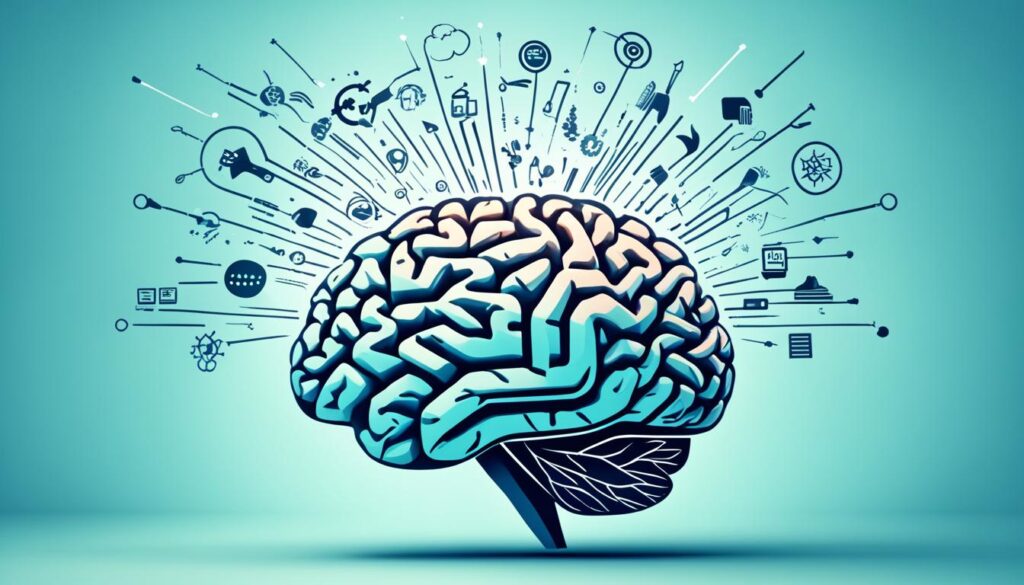Generative AI is revolutionizing the way B2B marketers approach their strategies. By leveraging the power of AI, B2B marketers can enhance their marketing efforts and stay ahead of the competition. In this article, we will explore three key ways B2B marketers can use generative AI to achieve better results in their campaigns.
Firstly, generative AI can transform keyword research for B2B marketers. By using AI-powered tools, such as ChatGPT, marketers can improve the efficiency and accuracy of their keyword analysis. Generative AI models can quickly generate relevant and untapped keyword opportunities, providing marketers with a competitive edge.
Secondly, generative AI can streamline content creation for B2B marketers. Tools like ChatGPT and Midjourney can automate the process of generating text, ideas, and even visuals for various types of content, including emails, ad copy, blogs, and social media posts. This enables marketers to create personalized and high-quality content that resonates with their target audience.
Lastly, generative AI can transform data analysis for B2B marketers. AI models can enable real-time data tracking, complex network visualization, and various data display options, providing marketers with up-to-date information and actionable insights. Generative AI enhances predictive analytics and text analytics, allowing marketers to extract valuable insights from large datasets.
Key Takeaways:
- Generative AI can transform keyword research by providing marketers with relevant and untapped keyword opportunities.
- Generative AI streamlines content creation by automating the process and enabling the creation of personalized and high-quality content.
- Generative AI enhances data analysis by providing real-time tracking, complex visualization, and actionable insights.
Enhancing Keyword Research with Generative AI
Keyword research is a vital part of B2B marketing, and leveraging generative AI can greatly improve the efficiency and accuracy of this process. By utilizing AI-powered tools like ChatGPT, B2B marketers can uncover untapped keyword opportunities and gain a competitive edge in their campaigns.
Generative AI models have the ability to quickly generate relevant keywords, helping marketers to identify high-performing search terms that may have been overlooked using traditional research methods. These AI models analyze vast amounts of data, enabling B2B marketers to discover valuable keyword insights that can drive targeted traffic and enhance their overall marketing strategy.
With generative AI, B2B marketers can streamline their keyword research efforts, saving time and resources while uncovering valuable opportunities. By automating the tedious task of manually searching for keywords, generative AI improves efficiency and allows marketers to focus on creating compelling content and optimizing their marketing campaigns.
While there are many benefits to using generative AI for keyword research, it’s important to acknowledge and address the challenges that come with it. One of the challenges is the potential biases that may be present in the generated keywords. AI models are trained on existing data, which can sometimes lead to biased results. B2B marketers must exercise caution and apply human judgement to ensure that the keywords selected align with their target audience and business goals.
Another challenge is the lack of cultural context in generative AI keyword research. Language and cultural nuances can greatly impact the effectiveness of keywords in different markets. B2B marketers must be mindful of these differences and adapt their keyword strategies accordingly to achieve the best results.
In summary, generative AI offers B2B marketers a powerful tool for enhancing keyword research and improving the performance of their marketing campaigns. By leveraging AI-powered tools to uncover untapped keyword opportunities, marketers can gain a competitive edge and drive targeted traffic to their websites. However, it is important to address the challenges of potential biases and cultural context to ensure the accuracy and relevance of the keywords generated by AI models.
Advantages of Enhancing Keyword Research with Generative AI:
- Improved efficiency and accuracy in keyword research
- Faster identification of untapped keyword opportunities
- Enhanced competitiveness in B2B marketing campaigns
- Streamlined keyword research process
Challenges in Generative AI Keyword Research:
- Potential biases in generated keywords
- Lack of cultural context in keyword selection
Comparative Analysis of Generative AI Keyword Research Tools
| ChatGPT | Other AI Tools | |
|---|---|---|
| Efficiency | High | Varies |
| Accuracy | High | Varies |
| Untapped Keyword Identification | Excellent | Varies |
| Competitive Advantage | Yes | Varies |
Generative AI keyword research tools like ChatGPT offer enhanced efficiency and accuracy compared to other AI tools. These tools excel in identifying untapped keyword opportunities, providing B2B marketers with a competitive advantage in their campaigns. However, it’s important to choose the right tool based on individual needs and requirements.

Streamlining Content Creation with Generative AI
Content creation is a labor-intensive process for B2B marketers, but generative AI offers a solution to streamline and automate this aspect of marketing. By utilizing AI-driven content generation tools like ChatGPT and Midjourney, marketers can efficiently produce a wide range of content, including emails, ad copy, blogs, and social media posts. These tools have the capability to not only generate text but also provide creative ideas and even visuals, empowering marketers to create personalized and high-quality content that resonates with their target audience.
Generative AI for content creation enables marketers to automate content production, saving time and resources while maintaining a consistent output. With AI-driven content generation, B2B marketers can create personalized content tailored to the unique preferences and needs of their audience, resulting in higher engagement and conversion rates. This personalized approach allows businesses to establish meaningful connections with their customers and build brand loyalty.
However, it is important to address the challenges that come with generative AI content creation. While AI tools can generate content efficiently, ensuring coherence, accuracy, and cultural relevance in the content requires human oversight. Marketers must strike a balance between leveraging generative AI for content creation and incorporating human expertise to fine-tune and enhance the results. This collaborative approach allows for a harmonious blend of automation and human creativity, resulting in content that effectively communicates the brand message and aligns with the marketing strategy.
“Generative AI revolutionizes content creation by offering marketers the power to automate production and personalize their messaging, resulting in high-quality content that resonates with their target audience.”
Benefits of Generative AI in Content Creation:
- Automation of content production
- Personalization at scale
- Efficient creation of various content types
- Higher engagement and conversion rates
Challenges in Generative AI Content Creation:
- Ensuring coherence and accuracy
- Cultural relevance and sensitivity
- Maintaining brand authenticity and voice
- Addressing potential biases in AI-generated content
| Benefits | Challenges |
|---|---|
| Automation of content production | Ensuring coherence and accuracy |
| Personalization at scale | Cultural relevance and sensitivity |
| Efficient creation of various content types | Maintaining brand authenticity and voice |
| Higher engagement and conversion rates | Addressing potential biases in AI-generated content |

Transforming Data Analysis with Generative AI
Generative AI is revolutionizing data analysis for B2B marketers. With the power of AI-driven data visualization and predictive analytics, businesses can extract valuable insights from their data that drive informed decision-making. These advancements in generative AI open up new opportunities for marketers to gain a competitive edge in their campaigns.
One of the key benefits of generative AI for data analysis is the ability to track and process real-time data. AI models can handle massive amounts of data and provide marketers with up-to-date information on market trends, customer behavior, and campaign performance. This enables marketers to make data-driven decisions in real-time, optimizing their strategies for maximum impact.
But it doesn’t stop there. Generative AI also offers advanced data visualization capabilities, allowing marketers to analyze complex networks and relationships within their datasets. Through visual representations, such as charts, graphs, and interactive dashboards, marketers can gain a deeper understanding of their data and unearth hidden patterns and insights. These visualizations not only simplify data analysis but also facilitate effective communication of findings to stakeholders.
Furthermore, generative AI assists in extracting actionable insights from data. AI models can analyze sentiment, detect anomalies, segment markets, and develop detailed buyer personas. By harnessing these capabilities, marketers gain a better understanding of customer preferences, pain points, and purchasing behavior. This enables them to create more targeted and personalized marketing campaigns that resonate with their audience on a deeper level.
Predictive analytics is another area where generative AI shines. By leveraging historical data, AI models can generate accurate predictions and forecasts for future trends and outcomes. This empowers marketers to proactively plan and optimize their campaigns based on these predictions, maximizing their chances of success.
Despite the numerous benefits, there are some challenges in generative AI data analysis that marketers should be aware of. One such challenge is the lack of cultural or business context in AI-generated insights. Human oversight is crucial to interpret the findings and ensure their applicability to the specific business context and target audience. Additionally, data privacy and security concerns need to be addressed to maintain consumer trust and compliance with regulations.
Overall, generative AI is transforming data analysis for B2B marketers, providing them with powerful tools and capabilities to uncover valuable insights and drive data-informed decision-making. By embracing the potential of generative AI, marketers can stay ahead in the ever-evolving digital landscape and achieve measurable success in their campaigns.

Personalizing Marketing Campaigns with Generative AI
Generative AI is a powerful tool that B2B marketers can utilize to personalize their marketing campaigns at scale. By leveraging generative AI, marketers can create highly targeted advertising campaigns with hyper-personalized content that resonates with individual customers.
Two popular tools that enable B2B marketers to achieve this level of personalization are Meta and LinkedIn Accelerate. These platforms provide marketers with the ability to tailor their campaigns and content to different customer segments, allowing for a more customized and relevant marketing experience.
With generative AI, marketers can go beyond basic segmentation and deliver ads, marketing materials, and customer experiences that are specifically designed to meet the preferences and needs of each individual customer. This level of personalization helps to create a stronger connection between the brand and the customer, ultimately leading to higher engagement and conversion rates.
However, there are challenges that marketers must address when using generative AI for personalization. One challenge is the risk of thinly customized content that may feel generic or lack authenticity. To overcome this, marketers must carefully balance automation with human oversight to ensure that the content generated by the AI reflects the brand’s voice and values.
Additionally, ownership concerns can arise when using generative AI for personalization. Marketers need to ensure that they have the appropriate rights to use the generated content and that it complies with relevant copyright laws and regulations.
Despite these challenges, the benefits of personalizing marketing campaigns with generative AI far outweigh the risks. By leveraging this technology, B2B marketers can create highly targeted and personalized campaigns that drive meaningful connections with their audience.
Let’s take a closer look at the potential impact of personalization with generative AI:
1. Targeted Advertising Campaigns
Generative AI enables B2B marketers to create targeted advertising campaigns that specifically reach their desired audience segments. By analyzing customer data and preferences, AI algorithms can generate personalized ad content that speaks directly to individual customers.
2. Hyper-Personalized Content
Generative AI empowers B2B marketers to generate hyper-personalized content that aligns with individual customer preferences. From customized emails to tailored landing pages, generative AI tools can create content that speaks directly to the unique needs and interests of each customer.
3. Enhancing Customer Experiences
Generative AI helps B2B marketers deliver exceptional customer experiences by tailoring the content and messaging to the individual. By personalizing interactions with customers, businesses can foster stronger relationships, increase customer satisfaction, and drive loyalty.
By leveraging the power of generative AI, B2B marketers can take their personalization efforts to new heights. With targeted advertising campaigns and hyper-personalized content, marketers can create meaningful connections with their audience, driving engagement and ultimately, business growth.

Conclusion
Generative AI is revolutionizing the B2B marketing landscape by offering immense potential to transform marketing strategies. By incorporating generative AI into keyword research, content creation, and data analysis, B2B marketers can enhance their efficiency, improve accuracy, and achieve personalized marketing outcomes.
Despite the challenges and limitations that come with using generative AI, with the right balance of AI and human expertise, B2B marketers can achieve incredible results in their campaigns. Embracing AI-driven marketing strategies is essential for staying ahead in the ever-evolving digital marketing landscape.
By leveraging AI technologies, B2B marketers can tap into the power of generative AI to streamline keyword research, automate content creation, analyze data more effectively, and personalize marketing campaigns at scale. The integration of generative AI enables marketers to optimize their productivity, create high-quality content, extract actionable insights, and deliver hyper-personalized experiences.
In conclusion, generative AI is the way forward for B2B marketers seeking to achieve better marketing outcomes. By capitalizing on the potential of AI-driven strategies, businesses can unlock new opportunities for growth, enhance customer engagement, and gain a competitive edge in the market.
FAQ
What are the three ways B2B marketers can use generative AI?
B2B marketers can leverage generative AI for keyword research, content creation, and data analysis to enhance their marketing strategies.
How can generative AI enhance keyword research for B2B marketers?
Generative AI can improve the efficiency and accuracy of keyword research by quickly generating relevant and untapped keyword opportunities.
What are the challenges to consider when using generative AI for keyword research?
Challenges include potential biases and lack of cultural context, which should be addressed to ensure accurate and unbiased keyword suggestions.
How can generative AI streamline content creation for B2B marketers?
Generative AI can automate the content creation process by generating text, ideas, and visuals for various types of content, such as emails, ad copy, blogs, and social media posts.
What are the challenges in generative AI content creation?
It’s important to balance generative AI with human oversight to ensure coherence, accuracy, and cultural relevance in the content.
How can generative AI transform data analysis for B2B marketers?
Generative AI enables real-time data tracking, complex network visualization, sentiment analysis, anomaly detection, market segmentation, and the development of buyer personas.
What limitations should be considered when using generative AI for data analysis?
Limitations include the lack of cultural or business context, which may impact the accuracy and relevance of the insights generated by generative AI models.
How can generative AI personalize marketing campaigns for B2B marketers?
Generative AI allows B2B marketers to create highly targeted campaigns with customized content for different customer segments, delivering personalized ads and marketing materials that cater to individual preferences.
What challenges should be addressed in generative AI personalization?
Challenges include creating thinly customized content and addressing concerns over ownership to ensure a positive purchase experience and maintain audience trust.








